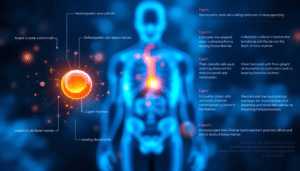Stem cell therapy emerges as a beacon of hope, transcending traditional treatments by tapping into the body’s innate healing power. In this exploration, discover how mesenchymal stem cells, the architects of natural regeneration, play a pivotal role in reshaping the narrative of ACL healing.
Uncover a personalized journey toward recovery, where minimally invasive solutions promise not only relief but a profound transformation in the way we approach knee health. Embrace the future – your knees deserve the precision and promise that ACL stem cell therapy brings.
What is ACL Stem Cell Therapy?
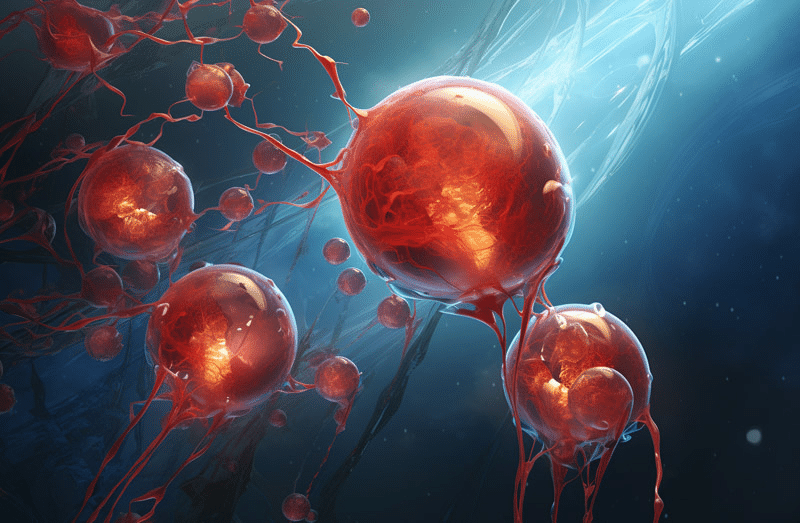
ACL (Anterior Cruciate Ligament) stem cell therapy is an innovative medical approach that utilizes the regenerative properties of stem cells to aid in the healing and repair of a damaged or torn ACL.
The ACL is a crucial ligament in the knee, and injuries to this ligament are common, particularly among athletes and individuals engaged in activities that involve sudden stops, changes in direction, or direct impact on the knee.
Imagine a solution that goes beyond traditional methods, embracing the potential of stem cells to not just alleviate but transform the landscape of knee health. Stem cells derived from different sources all showed good capacity in promoting regeneration, but their relative effects need to be compared to optimize the therapeutic efficacy.
ACL stem cell therapy holds promise in enhancing tendon-bone healing, providing a regenerative approach to address ACL injuries, and potentially contributing to more robust and effective recovery.
The stem cell treatment is a novel orthopedic therapy where customized stem cell concentrates are injected into the damaged site to enhance tissue regeneration naturally.
What is Stem Cell Ligament Repair Treatment

Stem cell ligament repair refers to a therapeutic approach that utilizes the regenerative potential of stem cells to promote the healing and restoration of damaged ligaments within the body. Ligaments are connective tissues that connect bones, providing stability to joints.
Injuries to ligaments can lead to pain, instability, and reduced joint function. Stem cell therapy offers an innovative method to address these injuries by facilitating the natural regenerative processes of the body. Mesenchymal stem cells injected into the area experiencing pain may help treat ACL injuries and help repair injured tissue.
Understanding ACL Stem Cell Tear Treatment Theories

The anterior cruciate ligament reconstruction is a crucial structure in the knee joint that plays a vital role in providing stability and controlling the back-and-forth motion of the knee.
Unfortunately, ACL tears are relatively common sudden stops or changes in direction, and direct blows to the knee.
It is not uncommon to have an inflammatory response after a stem cell injection. Most people who injure their ACL, experience a tear with a still intact outer sheath. If so, stem cell injections have a strong chance of repairing the tear.
Benefits of ACL Stem Cell Treatment

Facilitating Natural Healing
ACL stem cell therapy taps into the extraordinary regenerative abilities of stem cells. These cells possess the unique capacity to transform into various cell types including those vital for the formation of ligaments.
By introducing stem cells directly into the injured ACL, the therapy aims to initiate and expedite the natural healing process. This regenerative potential holds the promise of fostering the repair of damaged ligament tissues, potentially enhancing structural integrity and functionality.
Gentle Intervention
In contrast to traditional ACL surgeries, stem cell therapy for ACL injuries often employs minimally invasive procedures. Typically, this involves directly injecting stem cells into the site of the injury.
This non-surgical approach provides a less invasive option for individuals seeking treatment, potentially resulting in reduced trauma, quicker recovery times, and minimized post-procedural discomfort.
Swift Recovery
The non-surgical nature of ACL stem cell therapy contributes to shorter recovery times compared to conventional surgical approaches. This is particularly advantageous for individuals looking for a prompt return to their regular activities. A shortened recovery period can be beneficial for maintaining patient satisfaction and adherence to the treatment plan.
Sustainable Healing
ACL stem cell therapy goes beyond providing temporary relief that tackles the root cause of the injury. By fostering the regeneration of damaged ligament tissues, the therapy aims to offer more sustainable and long-term relief. This distinguishes stem cell therapy from treatments that merely manage symptoms, presenting a potential solution to enhance the overall health and function of the ACL.
Factors Affecting Success Rates in ACL Stem Cell Therapy

Stem cell therapy for ACL injuries holds promise but the success of the treatment can be influenced by various factors. Understanding these factors is crucial for individuals considering ACL stem cell therapies. Here’s an exploration of the key elements that can impact the success rates:
The Severity of ACL Injury
The extent of the ACL injury plays a significant role in determining the success of stem cell therapy. Mild to moderate tears may respond more favorably to regenerative treatments, while severe or complete tears may pose greater challenges. Assessing the severity is essential in tailoring the treatment plan for optimal outcomes.
Timing of Treatment
The timing of ACL stem cell therapy is critical. Early intervention may enhance the regenerative potential of stem cells. Delays in treatment might impact the healing environment and reduce the effectiveness of the therapy. Timely administration aligns with the natural healing processes of the body.
Patient Age and Health
The age and overall health of the patient can influence the success of ACL stem cell therapy. Younger patients, often characterized by more robust regenerative capacities may experience better outcomes. Additionally, overall health conditions, such as pre-existing medical issues or chronic diseases, can impact the body’s ability to respond to the treatment.
Treatment Protocol
The specific protocol used in ACL stem cell therapy can vary among healthcare providers and clinics. Factors such as the type of stem cells used, the delivery method, and the overall treatment plan can influence success rates. The choice of an appropriate and evidence-based protocol is crucial for achieving positive outcomes.
Rehabilitation and Follow-Up Care

Post-treatment rehabilitation and follow-up care are integral to the success of ACL stem cell therapy. Patients must adhere to prescribed rehabilitation exercises and follow-up appointments to optimize the healing process. Comprehensive post-treatment care contributes significantly to the long-term success of the therapy.
Lifestyle and Activity Level
The patient’s lifestyle and activity level post-treatment can impact the success of ACL stem cell therapy. Following a recommended activity modification plan and avoiding high-impact activities during the recovery period are crucial. Compliance with lifestyle recommendations contributes to the overall success and durability of the treatment.
Stem Cell Origins
Stem cells employed in the ligament repair process are derived from diverse sources. Autologous stem cells, extracted from the patient’s own body, are a prevalent choice to minimize rejection risks. These cells can be sourced from adipose tissue through a minimally invasive liposuction procedure or from the bone marrow. In specific cases, allogeneic stem cells from a donor may also be considered. Patients can also purchase stem cells from our lab.
Isolation and Refinement
Post-harvest stem cells undergo a meticulous process of isolation and concentration that results in a powerful blend. This concentrated solution is replete with regenerative cells and growth factors crucial for fostering tissue repair.
Precise Injection into the Ligament Site
The concentrated stem cells are meticulously injected directly into the site of the compromised ligament. Advanced imaging techniques guide this injection process, ensuring pinpoint accuracy within the injured ligament.
Initiation of Regenerative Processes
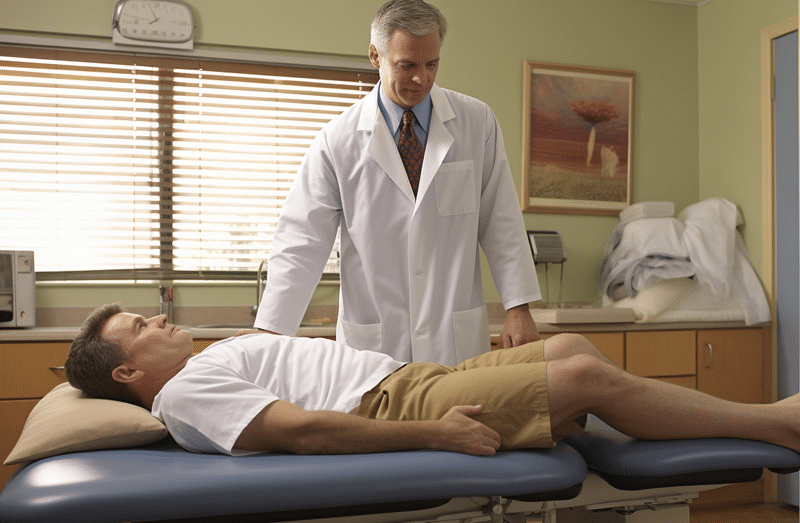
Stem cells kickstart regenerative processes upon injection. Their unique ability to differentiate into various cell types, particularly those vital for ligament formation is pivotal. Additionally, stem cells release bioactive molecules like growth factors and cytokines, instigating the repair and regeneration of ligament tissues.
Tissue Revitalization and Restructuring
The introduced stem cells actively contribute to the revitalization and restructuring of damaged ligament tissues. This encompasses the generation of new collagen fibers, playing a critical role in bolstering the structural integrity of ligaments.
Facilitation by Growth Factors
Growth factors that are integral to the regenerative process, create an optimal environment for tissue repair. They facilitate seamless communication between cells induce the formation of blood vessels, and contribute comprehensively to the overall healing response.
Tailored Post-Treatment Rehabilitation
Subsequent to stem cell therapy, patients embark on a personalized rehabilitation program, catering specifically to the ligament injury at hand. This program incorporates targeted exercises and physical therapy, gradually reinstating strength, flexibility, and functionality in the treated area.
Vigilant Monitoring and Follow-Up
Healthcare professionals maintain a close watch on the patient’s progress through scheduled follow-up appointments and imaging studies. This ongoing scrutiny ensures that the regenerative processes unfold as anticipated, allowing for any necessary fine-tuning of the rehabilitation plan.
Assessment of Suitability for ACL Stem Cell Therapy

Diagnosis and Severity of ACL Injury
Utilizing medical imaging such as MRI to precisely diagnose the ACL injury and determine its severity. Analyzing the specific location and nature of the tear to assess whether ACL Stem Cell Therapy is a viable treatment option.
Patient’s Medical History
Thoroughly review the patient’s medical history, including any pre-existing conditions, allergies, or chronic illnesses to ensure compatibility with the therapy.
Age and Overall Health
Considering the patient’s age and overall health, understanding that these factors play a role in determining the suitability for stem cell therapy.
Lifestyle and Activity Level
Evaluating the patient’s lifestyle and activity level to gauge whether stem cell therapy aligns with their daily life and potential physical activities.
FAQ

What is ACL Stem Cell Therapy, and how does it work?
ACL Stem Cell Therapy is an innovative treatment that utilizes the regenerative properties of stem cells to repair and restore the Anterior Cruciate Ligament (ACL) in the knee. Stem cells are injected into the damaged ACL, initiating regenerative processes and promoting tissue repair.
Who is a suitable candidate for ACL Stem Cell Therapy?
Suitable candidates typically include individuals with diagnosed ACL injuries, considering factors such as injury severity, overall health, lifestyle, and patient expectations. A thorough assessment by a healthcare professional is crucial to determine candidacy.
What is the success rate of ACL Stem Cell Therapy?
Success rates can vary, and outcomes depend on factors such as the severity of the injury, patient adherence to rehabilitation, and overall health. Research and clinical studies have shown promising results, but individual responses may differ.
How long does the recovery process take after ACL Stem Cell Therapy
Recovery times vary, but patients typically undergo a post-treatment rehabilitation program designed to gradually restore strength and function. The duration of recovery depends on the individual’s response to therapy and commitment to rehabilitation.
Conclusion
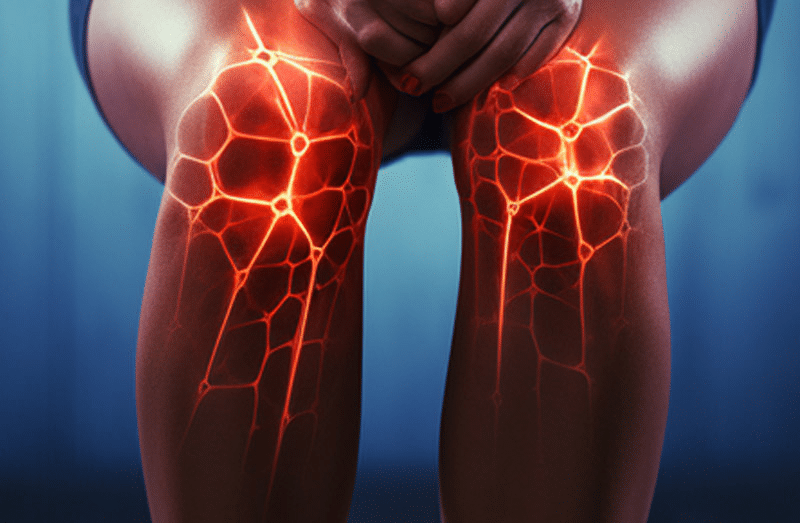
In conclusion, ACL Stem Cell Therapy represents a progressive approach to addressing ACL injuries, offering potential benefits in terms of tissue repair and functional restoration. While it may not be suitable for everyone, it presents an alternative worth exploring, especially for those seeking minimally invasive options.
As research continues to advance, ACL Stem Cell Therapy holds promise for enhancing the landscape of ligament repair and contributing to improved patient outcomes. Individuals considering this treatment are encouraged to consult with healthcare professionals for personalized guidance and to make informed decisions based on their unique circumstances.
Book An Appointment With Stem Cells LA
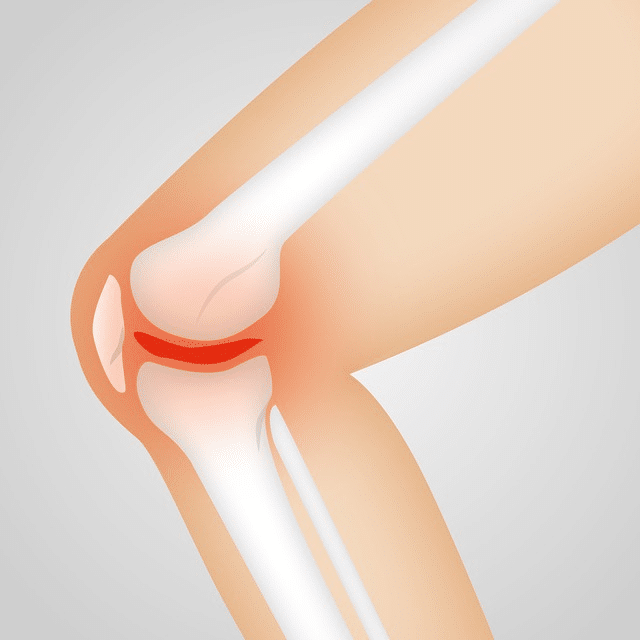
Continue your journey to address your ACL pain with ACL Stem Cell Therapy at Stem Cells LA in Redondo Beach, CA. It’s a modern way to help your knee get better naturally and avoid ACL surgery if at all possible. Our stem cell treatments are easy on your body, so you can recover quickly and enjoy an active life without pain.
Our team of experts will be with you every step of the way, giving you the care that’s just right for you. You can set up a talk with us to see if this treatment is good for you and learn more about how it can help your ACL. We have flexible payment options to make it easy for everyone to get the care they need.
Contact Information:
???? Call or Text: 310-281-6160
???? Visit Us:
1970 S. Prospect Ave. Suite 2
Redondo Beach, CA 90277

